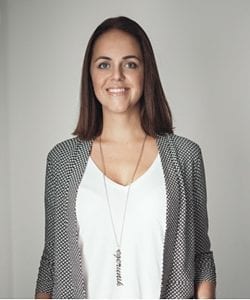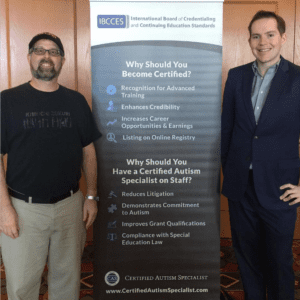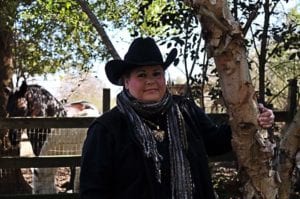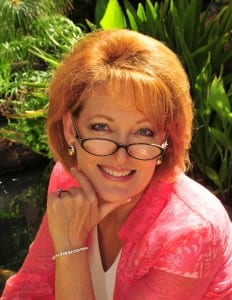 IBCCES Board Member Dr. Stephen Mark Shore rang in Autism Awareness on the Nasdaq bell Thursday, April 6 to celebrate April’s Autism Awareness Month. Congratulations Dr. Shore!
IBCCES Board Member Dr. Stephen Mark Shore rang in Autism Awareness on the Nasdaq bell Thursday, April 6 to celebrate April’s Autism Awareness Month. Congratulations Dr. Shore!
APR
 IBCCES Board Member Dr. Stephen Mark Shore rang in Autism Awareness on the Nasdaq bell Thursday, April 6 to celebrate April’s Autism Awareness Month. Congratulations Dr. Shore!
IBCCES Board Member Dr. Stephen Mark Shore rang in Autism Awareness on the Nasdaq bell Thursday, April 6 to celebrate April’s Autism Awareness Month. Congratulations Dr. Shore!
 By Donna Sigurðardóttir, founder of I am UNIK
By Donna Sigurðardóttir, founder of I am UNIKMy daughter’s future is bright. She is thriving at school because they are meeting her every need with an admirable flexibility, thoughtfulness and respect. All of which has been achieved with close cooperation between home and school, something that I believe are key factors in improving a child’s quality of life. Why? Because, on one hand we have the child’s parents, who are experts in the child and on the other hand we have the teacher, which is an expert in teaching methods and goal setting. When these two respect each others roles and take the time to listen and work together, magic happens!
Our teacher’s mentality is priceless. They have so much respect for my daughter and they put every effort in customizing her curriculum and learning environment to her needs. As an example I could mention that she always arrives late for school. Is that okay? Imagine this; she arrives into an empty school building and is exposed to minimum sensory input, which means that her stress levels are low and she gets a good start of the day. Otherwise it would take her teachers about an hour to unwind her after a chaotic school start and a maximum sensory input. That kind of a solution requires flexible thinking and caring.
 By Kerry Magro, Self-Advocate, National Speaker, and Author
By Kerry Magro, Self-Advocate, National Speaker, and AuthorI’ve written many articles about how the lack of having a peer role model growing up on the spectrum affected me. I didn’t know about Dr. Temple Grandin and others who had autism that I could look upon to show me how far I could go. As I reached adulthood though I learned about advocates such as Dr. Grandin, Carly Fleischmann, Alexis Wineman, John Elder Robison, Amy Gravino, Jesse Saperstein, the list goes on and on.
One person though who I particularly look up to is none other than international speaker Dr. Stephen Shore. Stephen Shore is not only a dear friend but also one of the biggest role models I currently have in my life.
 When I first met Stephen it was at an Autism Society of America conference. He immediately befriended me and wanted to get to know me better. After our first meeting I’d go on to read several of his books and later would be able to contribute a chapter to a book he co-authored called College for Students with Disabilities: We Do Belong. I to this day use his quote “if you’ve met one individual with autism, you’ve met one individual with autism” in a majority of my presentations. It shows how wide and unique our spectrum truly is.
When I first met Stephen it was at an Autism Society of America conference. He immediately befriended me and wanted to get to know me better. After our first meeting I’d go on to read several of his books and later would be able to contribute a chapter to a book he co-authored called College for Students with Disabilities: We Do Belong. I to this day use his quote “if you’ve met one individual with autism, you’ve met one individual with autism” in a majority of my presentations. It shows how wide and unique our spectrum truly is.
Another quote which I enjoy from Stephen is on his website where he mentions the “unlimited potential for people on the autism spectrum.” What a wonderful message. I think that’s something our entire community wants to see for our loved ones.
Now even years later it’s been astonishing to see how many times our paths have crossed. Although we are only a trade ride away from each other, me being from New Jersey and Stephen teaching in New York at Adelphi University, we still end up running into each other around the world speaking at different events. Most recently, our paths even crossed at ISCRD 2017 hosted by IBCCES in St. Augustine, Florida.
 By Anita Lesko, BSN, RN, MS, CRNA
By Anita Lesko, BSN, RN, MS, CRNA
I have the good fortune to be a friend of Dr. Temple Grandin. We have a lot in common. We are both autistic, and we share a very similar youth that played a big factor in our adult life. We both started having jobs at a very early age. Temple often talks about her early days, when her job was to greet guests at the door for her mom’s dinner party, and take their coats to hang up. Yes, it was a job. She was given a responsibility to carry out.
Among her numerous other childhood jobs was the one I, too, did for many years — mucking out horse stalls. In conversations with Temple on the phone, we’ve talked about those days of our teenage years spent shoveling out one stall after another. We both love horses and being around them. It was peaceful and it was also a form of therapy. In essence, it was our occupational therapy.
All the childhood jobs we did prepared us for the day when we’d start our careers. We were used to working, showing up on time, following orders from a boss, figuring out how to get a job done. It was just a regular part of our life. So, when the day came to embark into our careers, we really didn’t have to transition into anything. We were already there.
 By Kerry Magro, Self-Advocate, National Speaker, and Author
By Kerry Magro, Self-Advocate, National Speaker, and AuthorSomeone once said that ‘sarcasm is a metric for potential.’ Often at times though this is one of the hardest struggles for those with autism growing up.
A lack of sarcasm is often one of the most common characteristics of struggling with an autism diagnosis along with things such as social and communication issues, difficulties reading body language, using different tones in their voices and many more.
I remember as a young boy on the spectrum in computer class and hearing a joke that I didn’t find funny. It was a sarcastic joke by our teacher and while everyone else in the class laughed I was there completely blank. A girl looked at me after the joke had stopped like I had three heads.
 By Carol S. Weinman, Esq., Autism Legal Specialist
By Carol S. Weinman, Esq., Autism Legal Specialist
What better time to initiate a conversation about encounters with the criminal justice system than during Autism Awareness Month in April? While it may be well known that many individuals with Autism Spectrum Disorder (ASD) are victimized and bullied, it often comes as a surprise to learn that individuals with ASD are increasingly finding themselves detained in the back of a police wagon or seated in a courtroom at the defendant’s table. That’s why the demand for education and awareness on this timely topic is greater than ever before.
Written by Rachel Wise (article republished with permission)
In this article you will find 15 supportive behavior strategies for children on the autism spectrum (some strategies can be used with adults as well). Many of the strategies can also be used to help children without autism who have challenging behaviors.When caring for or working with a child with autism, a parent, teacher, or other adult may become frustrated with the child’s behavior. Behaviors can come on suddenly, last for hours, be hard to control, or make the adult scared or embarrassed.
By Taveesha Guyton, Social Worker
Being a caregiver is hard. The scheduling of medical, dental, school and after school activities and appointments is daunting. Let us not forget meal prep and clean up followed by the constant cleaning after little people who leave toys, and food everywhere. Yes, being a caregiver is difficult, and it is not easy when one is the caregiver of a child with Special Needs such as Intellectually Disabilities or Autism. Is there care for the caregiver and if so, what does care include? Here are some helpful tips to help caregivers.
 “Hand in Hand with Elayne”
“Hand in Hand with Elayne”
By Elayne Pearson, Special Needs Preparedness Specialist, CAS
Most children love Halloween, but it can be tricky―and downright scary for some. This holiday can be problematic for people with sensory issues―from the intense sights, sounds, smells, tastes, and textures bombarding them each October. If you have a child affected by a special-need, especially autism, Halloween can be a complex time. It can conjure a cauldron of concerns―resulting in amplified anxiety, increased impulsivity, deeper withdrawal, and even insomnia and nightmares. Yikes!
Over the many years with Heidi Ann (our little pumpkin with Down syndrome and autism) I learned several strategies to make this crazy/creepy holiday not only a happier one for her, but a sane one for us. My acronym “HALLOWEEN” offers options, cautions, and examples to help set a better tone.
By: Sheryl Rosin Ph.D.,CCC-SLP, Owner/Director of Palm Beach Speech-Language Specialists, CAS and Trainer for IBCCES, Adjunct Professor, Nova Southeastern University
 Meet Dominik
Meet Dominik
I have been working with individuals with autism for 20 years and have met many interesting and exciting people along the way. In this blog, I have someone that I would like to introduce to you that I believe is an extraordinary person. His name is Dominik and he is 14-years-old. Dominik has diagnoses of autism and apraxia and is essentially non-verbal with his spoken language, but is definitely NOT non-verbal when using other means to communicate aside from the spoken word. Upon meeting Dominik, you may assume that he has limited communication skills, but since we presume competence when working with our clients, I learned that the opposite it true. Dominik has a passion for writing and using language to communicate his vast interests. One of the ways he has learned to do this is through an augmentative communication application called “Speak for Yourself (SFY).” SFY runs as a communication device on the iPad and uses synthetic speech to aid individuals with their expressive language output. It is based on core vocabulary and allows the person to communicate using generative language. Dominik has learned to use the augmentative communication system to express his wants and needs, feelings, hold conversations with others, and to communicate his expansive knowledge and interests in a variety of topics. Our conversations using AAC have ranged from the etiology of autism to future careers. Dominik thinks that vaccines “are the culprit of autism” and wants to be “a neurologist” when he is older. When Dominik communicates using AAC, he let us into his amazing world of thought. Not only does he use SFY; he can type on a computer keyboard, write with facilitated assistance, and is now starting to use verbal speech as AAC has been a bridge to developing spoken language for him.